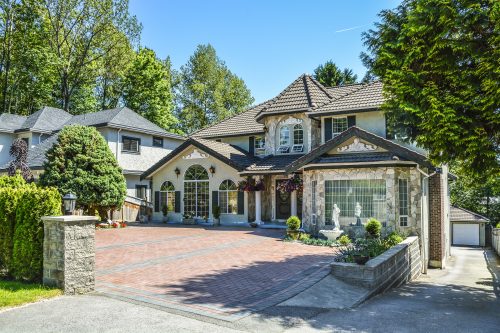There are several types of sealers that can be used to seal pavers, but the most popular type of paver sealers are Silane-Siloxane water repellent sealers and acrylic sealers.
| Silane Siloxane Concrete Sealers | Acrylic Concrete Sealers |
| Won’t change the look of the concrete | Enahnces with a wet look or gloss |
| Works entirely below the surface | Leaves a visible surface film |
| Lasts 7-10 years | Lasts 1-5 years |
| Repels surface water | Protects surface against staining |
| Reduces staining and deterioration | Stops dusting, staining, deterioration |
| Can be used on interior/exterior concrete | Can be used on interior/exterior concrete |
Silane-Siloxane Sealers: Silane siloxane sealers won’t change the look or color of the pavers. They work entirely below the surface and reduce the absorption of water and other liquids. Pavers sealed with a Silane-Siloxane water repellent are more resistant to damage and deterioration caused by water absorption such as cracking, spalling, staining, freeze-thaw damage, mold and mildew growth, and efflorescence formation.
Best water repellent sealers:
- Armor SX5000 Concrete Sealer Review (average 4.8 star review)
- Siloxane PD Concrete Sealer Review (average 4.5 star review)
Acrylic Sealers: Acrylic sealers will enhance the pavers with a wet look, low gloss, or high gloss finish. They enhance and protect pavers with a visible surface film.
Best acrylic sealers:
- Eagle High Gloss Sealer (average 4.6 star review)
- Armor AR350 Wet Look Sealer (average 4.8 star review)
- Armor AR500 High Gloss Sealer (average 4.9 star review)
- Enduraseal SB Acrylic Sealer (average 4.5 star review)
Information about Paver Sealers
Before choosing a paver sealer it is important to check with the paver manufacturer to make sure that you can seal your pavers. Old pavers have no issues, but some new pavers can’t be sealed for up a year after install. This has to do with the lime content of the pavers and the PH. Some paver manufacturers require that their pavers be sealed immediately after being installed, and other paver manufacturers require that their pavers not be sealed for the first year. If you have newly installed pavers, check with the manufacturer first to make sure you are allowed to seal the pavers.
Once you have verified that your pavers can be sealed, you need to choose a paver sealer. If your pavers have never been sealed before then you can use a Silane Siloxane water repellent sealer or an acrylic sealer. If your pavers have been previously sealed, or if there is still old sealer on the pavers, then you want to make sure that the new sealer is compatible with the old sealer. Water repellent sealers can be recoated with a solvent based water repellent sealer or a solvent based acrylic sealer, and acrylic sealers can be reocated with the same time of acrylic sealer that is currently down (water based acrylic sealers recoat water based acrylics and solvent based acrylic sealers recoat solvent based acrylics). Mixing the wrong types of sealers can result in discoloration of the surface or coating failure.

